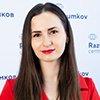The lack of national capital and the need for restructuring of companies on the one hand, and the need to reduce the technological gap on the other raise the issue of attracting foreign investments in Ukraine.
Without a doubt, Ukraine boasts a number of investment-attractive factors that contribute to expansion of its investment ties. These include large and capacious domestic market with virtually unlimited competition for most commodities; geographical location at the intersection of major transport routes between Europe and Asia; relatively cheap yet skilled labour; scientific potential; developed infrastructure (ports, bridges, airfields, warehouses, communication systems, water supply) and many others.
However, by the volume of accumulated foreign investment — one of key indicators showing the degree of country’s integration in the global economy, the development of its foreign economic relations, and the desire to introduce an open and export-oriented economic model — Ukraine lags far behind most countries with the transition economy.
Global financial crisis of 2008-2009 and the Russian military aggression against Ukraine several years thereafter have significantly damaged investors’ expectations regarding further prospects of investing and physical security of assets in the country, while ensuing adjustments have led to a reduction in revenues and even escape of capital at some points.
THE SHARE OF OFFSHORE INVESTMENT AND ITS IMPACT
The process of foreign investment in Ukraine has a number of peculiarities.
First, despite the fact that foreign direct investment (FDI) to the Ukrainian economy in early 2019 has arrived from about 130 countries, most of these funds traditionally come from limited group of countries. This points at low geographical diversification of FDI exporters.
Second, FDI in Ukraine is formed by two groups of capital — those directly owned by foreign residents, and those controlled by foreign companies owned by Ukrainian residents (Ukrainian capital previously moved to offshores — so-called round-tripping FDI). An analysis of FDI exporters to the Ukrainian economy reveals low share of FDI from developed countries, while the size of investment from offshore zones is quite significant. In particular, by the end of 2017 the total volume of accumulated FDI from these regions has reached $13,045.7 million, which is about 33% of the total FDI. In this way, offshore investment displaces the developed countries’ capital from the Ukrainian economy, providing for only quantitative growth of FDI inflow, rather than qualitative one.
It is important for Ukraine to generate investment from the nations that are technological leaders making products with high added value. These are the “old” members of the the European Union (France, Italy, Germany), as well as the United States and Japan.
THE MOST ATTRACTIVE SECTORS FOR INVESTORS
Most investors in the Ukrainian market eagerly invest in the processing industry, as well as in the wholesale and retail trade — sectors with rapidly emerging new products, ever-changing product mix, quick repayment of costs and low commercial risks. Other popular sectors are those not requiring require long-term investment and introduction of new technologies — the financial and real estate sectors.
Despite the fact that highly profitable branches of the economy receive most investment, this hardly improves the country’s competitive position in world markets. Excessive FDI in the financial sector, on the one hand, fills the financial system with working assets, thus contributing to stable liquidity of the financial sector, but create the basis for extensive development of the national economy on the other.
This FDI structure does not allow Ukraine to fully integrate into global chains of added value, and further reduces the share of Ukraine’s high-tech exports among the countries. Currently it accounts for only 7.2% of industrial exports.
Priority should be given to FDI in the development of high-tech and knowledge intensive industries, which strengthens the country’s export potential and increases the competitiveness of Ukrainian goods in world markets.
PECULIARITIES OF REGULATION OF THE INVESTMENT ACTIVITY
The national government routinely emphasises the need for attractive investment climate in Ukraine. However, practical steps in this direction are extremely slowly. Moreover, the investment attractiveness is often affected by non-economic factors. According to the European Business Association, key reasons that adversely affect the investors' willingness to invest include corruption and ineffective judiciary (inability to protect property rights or resolve business disputes fairly); problematic allocation of land plots and VAT refunds; technical barriers in trade and customs procedures. Other reasons include the uncertainty and non-transparency of legislative regulations, as well as frequent changes in legislation; high level of bureaucracy (the need to obtain large numbers of different permits); excessive authority of the control and inspection bodies. In addition, the weakness of state institutions and disregard to investors’ issues by government agencies create uncertainty and undermine the image of Ukraine as a reliable business partner. All this fuels bias in potential investors.
In recent years, investors have faced the problem linked to alienation and damage of property in non-government-controlled areas of Ukraine. For example, in 2017 a number of insurance companies refused to pay compensations to policy holders (including foreign ones) for damaged property in the ATO areas, citing the absence of insurance against military operations in relevant contracts. Due to impossibility of calculating such losses, private insurers are reluctant to cover non-commercial risks. One of possible solutions for minimizing non-commercial risks could include provision of the state support for investors in the form of insurance against risks (establishment of independent insurance companies) not covered by private insurance companies.
Ukraine can only become potentially attractive only with effective implementation of economic and administrative reforms, de-regulation, fight against corruption, and improvement of legislation and enforcement practices, coupled with efforts aimed at attracting foreign investors.





